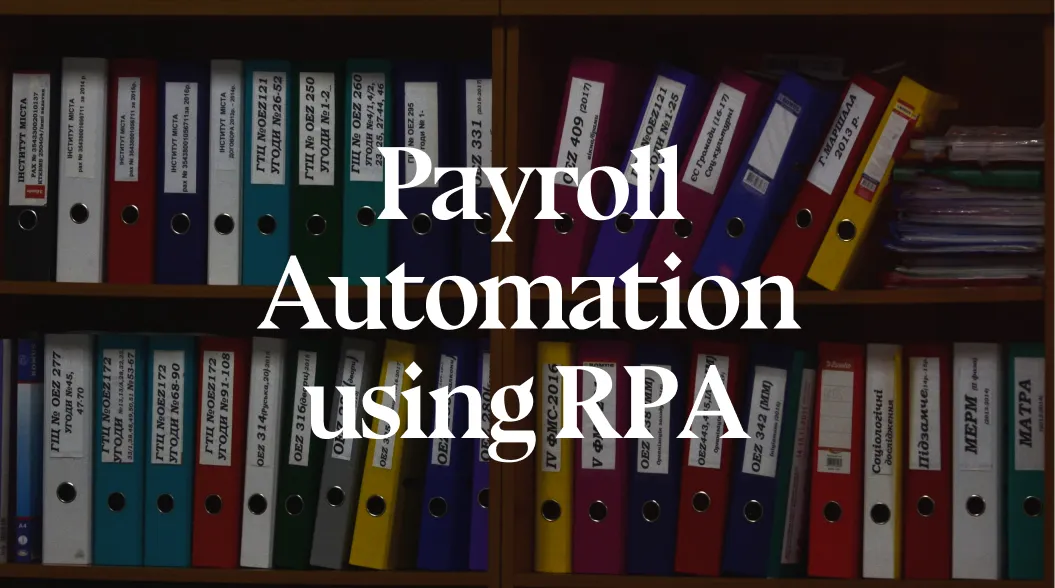Where should the focus of human minds be? Strategically thinking, should it rather be to perform repetitive mundane rule-based tasks or to focus on intellectual value-added activities? Note: The concept is non-utopian and non-hypothetical! The ball is now in the global leader’s court!
Enterprise markets today have complex award rates pay system. With complexities arise discrepancies and payroll errors that could even cost millions!
Payroll is based on rules and calendar dates. With every pay cycle demanding accuracy, well-planned coordination, and timeliness across the organization, not to forget the global payroll compliances governed by laws, it puts human resource professionals across the globe in deep waters. Upon entering the technical information on payments, tax calculations, and verified hours of work, robotic process automation has the potential to handle payroll administration.
The following are the RPA use cases:
Process Efficiency:
The efficiency of the payroll process is increased manifold. RPA has helped reached higher accuracy rates, consistently. According to CloudPay, the deployment of RPA results in the following:
- Auditing requirement reduced by 80% on average
- Cycle time cut by 40% (including exception handling and auditing)
- Completion rate (work flowing straight through) on Absence ~ 87%
- Completion rate on attendance ~ 96%
- FTE savings of between 80-90%
Timekeeping Record Validation:
RPA validates the number of hours worked by the employees, including holidays, vacation, contractual and permanent changes, reconciliation of payroll, deductions and notifies all calculations.
Global Compliance:
According to Webster Buchanan Research: It’s based on the belief that while every legislative environment is different, the majority of the processes performed in a payroll operation – often cited as 70% or more – are common regardless of where they take place. Payroll data is prepared and submitted; gross-to-net calculations are made; payments are deposited; payslips are issued, and relevant internal and externals reports are completed. Skcript’s RPA projects can automate the payroll based on global compliances, across the world.
Machine Learning through Artificial Intelligence:
RPA is more than simple payroll automation! RPA enables machine learning through Artificial Intelligence, where robs learn from disruptive behaviors and tackles such situations in the future.
In addition to low payroll costs, the system is secured from data breach and information is kept confidential within the organization.
As always said, automation of repetitive mundane tasks always gives room for new ideas and innovation. Let’s create the space for innovation! “Everything that can be automated will be automated”, said Harvard Professor Shoshana Zuboff in her book In the Age of the Smart Machine: The Future of Work and Power in 1988, which is true to RPA!
Subscribe to our newsletter
Get the latest updates from our team delivered directly to your inbox.
Related Posts
3 Genius ways to use RPA in your organization
RPA can help your organization handle data 10x times better. Read to explore the different ways.
9 Key Business Benefits of RPA
RPA, the next evolution of business operations provides huge benefits to enterprises by automating their manual and repetitive tasks, enabling humans to work on creative and logical tasks
A Guide to Extracting Multiple Tables from Web Page with UiPath
Data scraping is transforming the world with its applications. Digital businesses, Marketing and researchers are highly benefited by data scarping. Here is how to extract multiple tables from single webpage using Uipath.
